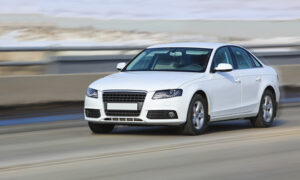Volkswagen’s ID Buzz, a $70,000 electric van, seeks to revive the EV industry with its spacious, distinctive style and seven-seat capacity.
TakeAway Points:
- Volkswagen’s ID Buzz, an electric van modelled after the iconic VW Bus, is expected to hit the US market in 2024, with a starting price higher than the average for EVs.
- With its distinctive seven-seater design and premium features, like an electrochromic glass roof, the ID Buzz aims to revitalise the flagging US EV market.
- However, obstacles like the lack of charging infrastructure and the vehicle’s premium pricing may hinder its mass-market appeal, even though potential tax credits could lower consumer costs.
Volkswagen’s Electric Van
Volkswagen is set to introduce the ID Buzz, an all-electric bus that harks back to the iconic VW Bus of the 1950s, 1960s, and 1970s. The ID Buzz, which is expected to be delivered to American buyers in 2024, represents Volkswagen’s latest foray into the electric vehicle (EV) market.
While U.S. pricing has not been disclosed, the European version of the Buzz starts at approximately $70,000 before incentives. This price point places the Buzz on the higher end of the EV market, with the average price of a new EV in the U.S. currently standing at $52,300 and luxury EVs averaging at $61,400, according to Kelley Blue Book.
Pablo Di Si, Volkswagen Group of America CEO, emphasized the unique appeal of the ID Buzz, noting its distinctive shape and iconic value. The vehicle boasts a seven-seater capacity, high build quality, and features such as an electrochromic glass roof. Its design has already attracted attention during test rides in Midtown Manhattan, underscoring the potential for the ID Buzz to make a significant impact upon its release.
Effects on the Industry
The launch of the ID Buzz comes at a critical time for the U.S. EV market, which has seen a deceleration in sales growth. This slowdown is attributed to the market being saturated with high-priced, five-seat crossover-sized vehicles that appeal to a limited segment of car buyers. Volkswagen’s introduction of the ID Buzz, with its unique design and seven-seater capacity, could invigorate the market by offering an alternative to the prevailing trends.
Volkswagen Group of America CEO Pablo Di Si expressed confidence in the EV market, stating that the pushback against EVs is not about the vehicles themselves but concerns over charging infrastructure and costs. He highlighted that, with tax credits, the cost of many EVs could be reduced to around $30,000 for consumers, making them more accessible.
Market Obstacles and Charging Infrastructure
One of the main challenges facing the adoption of EVs, as noted by Di Si, is the charging infrastructure. Consumers’ concerns about the availability and convenience of charging stations are significant hurdles for the EV market. Addressing these concerns is crucial for Volkswagen and other automakers as they seek to increase the adoption of EVs among the general public.
The pricing of the ID Buzz, which is expected to be higher than the average EV and may not qualify for the U.S. purchase tax credit, poses another challenge. This pricing strategy could limit ID Buzz’s appeal to a broader market, potentially categorizing it as a niche product rather than a mass-market minivan.
“Look at the shape and the iconic value of this vehicle, we’re not going to compete with anybody. The pushback is not on the electric vehicle itself; it’s on charging.” Pablo Di Si, Volkswagen Group of America CEO, said.



































